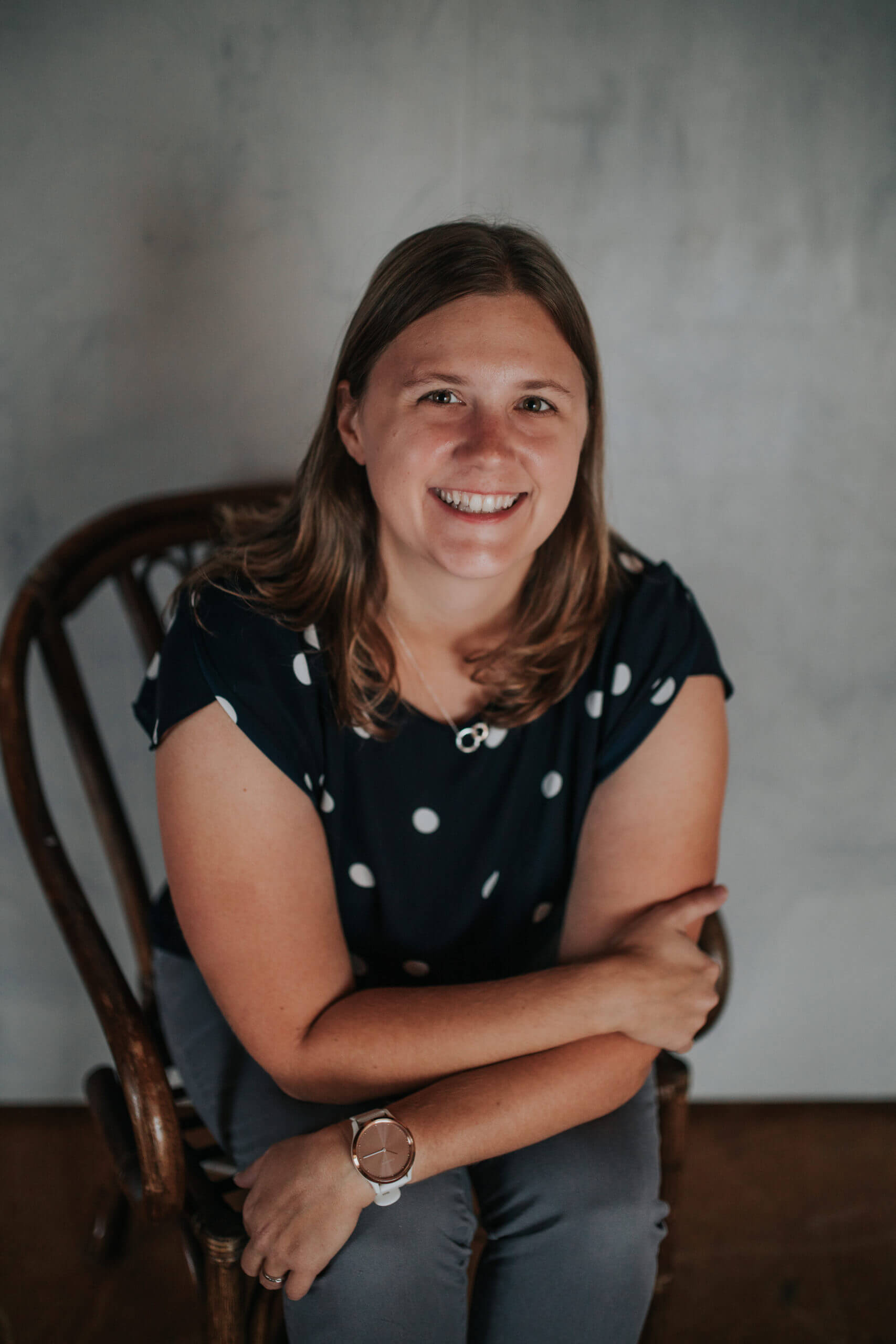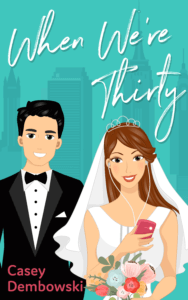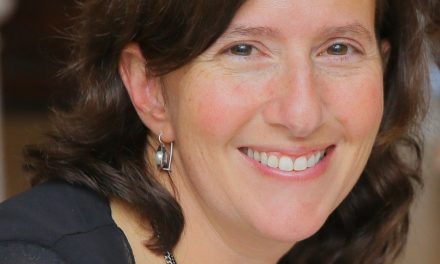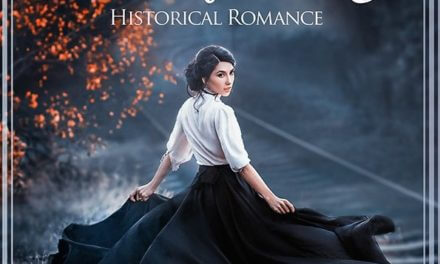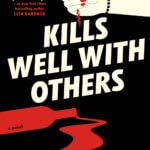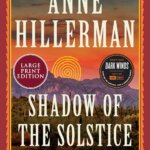On today’s blog, I interview Casey Dembowski, author of When We’re Thirty. The first story she remembers writing was in the second grade, though it wasn’t until she was twelve that she started carrying a battered composition notebook around everywhere. Since then, there hasn’t been a time when Casey isn’t writing.
Casey loves to write stories that focus on the intricacies of relationships–whether they be romantic, familial or platonic. Her novels focus on the inner workings of women and how everything in their lives leads them to exactly where they are, whether they like it or not.
Casey lives in New Jersey with her husband, daughter and their two cats. She has an MFA in Fiction from Adelphi University, and currently works in corporate marketing communications. In her (limited) spare time, she enjoys reading, baking, and watching her favorite television shows on repeat.
SS: Welcome, Casey. When I read other authors’ biographies, I worry mine is dishwater-dull. How do you feel about your life story? Have you ever been tempted to jazz yours up?
CD: My story is pretty common—I’ve always written, studied it in college and graduate school, took a long road to publication while I started my professional and personal adult life—but, in a way, I like that. I hope that it helps aspiring writers see that you don’t need to have an intense backstory in order to be successful.
SS: Writing is undoubtedly a lonely occupation. John Green (The Fault in Our Stars) says writing is a profession for introverts who want to tell you a story but don’t want to make eye contact while doing it. P. D. James (Cover Her Face) says it’s essential for writers to enjoy their own company. Do you see yourself along those lines? Are you a natural loner?
CD: I hear this a lot, but I’m actually fairly extroverted, and while you are writing alone, I also feel that writing is such a community. I have so many small groups and writer friends that I rely on day in and day out, and while they aren’t standing over my shoulder while I write, they are always encouraging me from the sidelines.
SS: Is your day job a distraction, or does it add another element to your writing?
CD: Working in corporate communications, my day job is a bit of both. It can be hard to come home and write after writing and editing content all day, but I also am always honing my skills as an editor at work, so that helps me with my novel writing as well.
SS: Khaled Hosseini (The Kite Runner) says that he feels he is discovering a story rather than creating it. Are you a plotter? Or do let the novel develop organically?
CD: I am generally a pantser in that I let the story develop organically. I do, however, usually have a general direction I’m working towards. I don’t outline, but I’ll have broad moments bulleted that I need to reach—how and when I get there all depends on the characters’ choices and let me tell you sometimes, they do things I don’t expect!
SS: Was the decision of how to structure the novel obvious?
CD: The biggest surprise was Will. I started When We’re Thirty not knowing he would have a POV, and then a few chapters in, he just appeared. I love that first chapter with him, because while we see him through Hannah and how she perceives him, when we get into his head he’s even more of that spontaneous and loveable person. It grants him a depth that we would miss if we only saw him through Hannah’s eyes.
SS: How do you create and construct distinctly individual supporting characters?
CD: I use my supporting characters as ways to bring out different sides of my protagonists. Each secondary character interacts differently with the main character. In doing this, I’m able to dive into those interactions and ask why, and then build out a character from that. As I mentioned earlier, my characters tend to make their own choices. This is the same for my supporting characters. I am able to tune into them and see how they would react to something rather than how I may need them to act for the plot. This is key to making them feel authentic and not just sounding boards for the protagonists.
SS: What do your fans mean to you?
CD: Having fans is still a new concept to me, but I am so appreciative of everyone who has read my book. I love hearing what they loved and didn’t love, and what the story meant to them. I have those books and authors, who just hit a certain way for me, and I hope to one day be that for someone else.
SS: Is there a phrase or quote about writing you particularly like or that inspires you?
CD: Yes! I found this quote from an interview with Lorrie Moore in The Paris Review when I read Self-Help as part of my MFA program, and I still think about it often. It’s such a great way to think about the writing life: “I wasn’t at all sure whether I would be able to survive as a writer for the rest of my life. But I decided to keep going for as long as I could and let someone else lock me up for incurable insanity.” —Lorrie Moore
SS: How important are romance tropes? Do you ever feel the need to break free of their constraints? I
CD: have a lot of fun writing in tropes, mainly because you usually get to find a way to make a tried-and-true story feel fresh and unique. I love knowing that I’m guaranteed a happy ending; it allows me to fully enjoy the journey to get there.
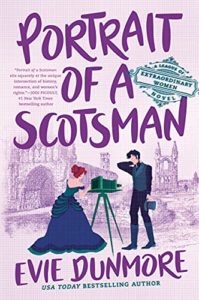
SS: Favorite thing about your genre? Banter and HEA!
SS: Book you’re currently reading: Portrait of a Scotsman by Evie Dunmore
********************
When We’re Thirty is available through:
********************
An excerpt from When We’re Thirty:
Hannah’s eyes widened at the boulder-sized princess cut diamond in front of her. Her heart dropped—Brian. A few hours ago, she’d been debating breaking up with him. Was he really proposing on the dirty hallway floor? Hannah blinked rapidly, trapping tears she knew were coming. She’d brought up engagement six months ago. He’d scoffed and disappeared for a week, reemerging with a tan and few apologies. But here he was on bended knee. She turned her attention from the ring to the man kneeling in front of her—the man who was not Brian.
She took in the older, leaner version of the boy she had once known. Memories flooded her brain—study sessions, drunken nights, Wilderness concerts, a graduation-night kiss, and finally, the image of him draped over yet another girl, this one in a bridesmaid dress.
“William Thorne,” she said derisively. Her body buzzed, adrenaline coursing through her. She’d wanted it to be Brian—for him to have finally figured out that he wanted her for more than just the foreseeable future.
She turned her attention back to Will. He remained on one knee but had lowered the ring. A smile, halfway between questioning and amused, played across his face. “This is amazingly uncomfortable. Why do people propose like this?”
“Knights, courting, et cetera and so forth,” Hannah said absently, waving him into her apartment. She peeked around the door, but fortunately, it was late enough that the hallway was empty.
Will stood, pocketed the ring, and came in hesitantly despite his initial grand entrance. Hannah watched his eyes travel around the room, taking in the small clues littered throughout the apartment before focusing on her laptop, which still had a picture of the two of them open. Great first impression.
“You seem surprised to see me,” he said, turning his full attention and the power of his perfect smile on her.
She should’ve felt surprise at Will’s sudden appearance, but she didn’t. And not just because she’d just gotten a friend request from him—this was completely and utterly a Will thing to do. And really, she should’ve been expecting him.
“Well, you are a day late.” On top of the last half a decade. Even as Hannah thought it, she knew she had a hand in those lost years. In the end, it wouldn’t matter—not for them. They would still be Will and Hannah. She knew it, and by the contented expression on Will’s face, he knew it too.
********************
You can follow Casey on social media here:
Website | Facebook | Twitter | Instagram | Goodreads | Bookbub
********************
This post contains Amazon Affiliate links. As an Amazon Associate, I earn a small amount from qualifying purchases.
